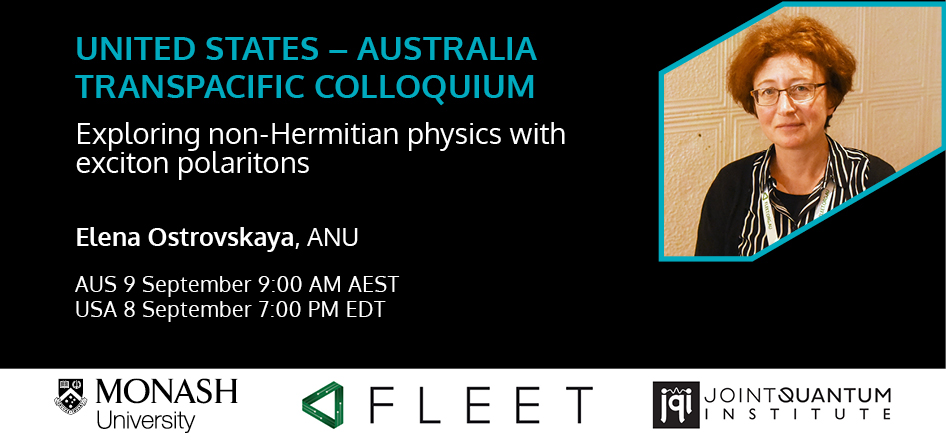-
9 Sep 2021
9:00 am - 10:00 am
Prof Elena Ostrovskaya
Australian National University the Research School of Physics, the Australian National University
Exciton polaritons are hybrid light-matter bosons formed by excitons in semiconductors strongly coupled to microcavity photons. Sufficiently strong optical pumping can drive exciton-polaritons to a macroscopically occupied coherent state similar to a Bose-Einstein condensate. The same optical pump that injects polaritons into the system and drives them to condensation can also be used to induce effective trapping potentials for exciton-polaritons. In this talk, I will discuss how optically induced confinement enables us to explore the non-Hermitian physics of the exciton-polariton systems experimentally. I will also talk about the opportunities that this platform provides for probing non-Hermitian topology.
Prof Ostrovskaya’s research group, the Polariton BEC Research Group at the Research School of Physics, the Australian National University contributes to FLEET’s research program and undertakes experimental and theoretical research on Bose-Einstein condensate (BEC) of exciton-polaritons in semiconductor microcavities. Their projects include low-dimensional physics of exciton-polaritons, the generation of non-classical states, non-equilibrium physics, and fundamental investigations aiming to enable future polaritonic devices.
Prof Ostrovskaya’s research interests include the following:
- Exciton-polaritons in semiconductor microcavities
- Bose-Einstein condensates of ultracold atoms
- Nonlinear optics and photonics
- Nonlinear dynamics
This talk is part of an ongoing series of talks by US and Australian researchers presenting novel developments in condensed matter and cold atomic physics, enriching connections between the two physics communities. Co-presented by FLEET, Monash School of Physics and Astronomy, and the Joint Quantum Institute.
USA EDT time: 8 September, 7 PM
Time converter at worldtimebuddy.com

